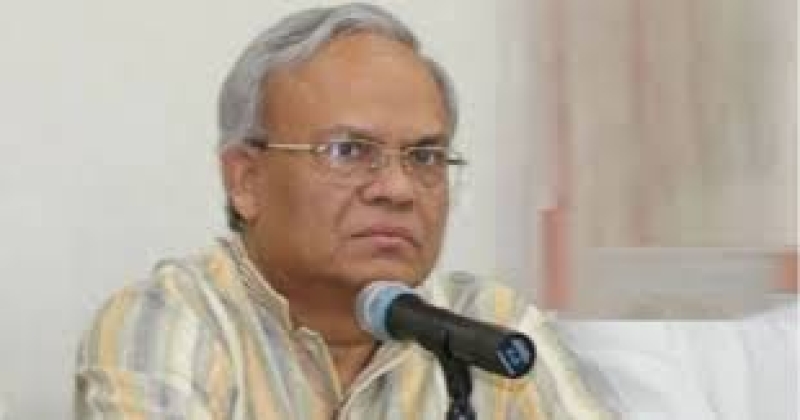- Govt reaffirms commitment to distribute school books by Jan |
- Dhaka’s air turns ‘unhealthy’ on Sunday morning |
- BD’s leather sector stuck at $1bn; could tap $5bn: Experts |
- RU suspends ward quota reinstatement amid student protests |
- Airports across Europe face disruptions due to cyberattack |
Jamaat Trying to Build 'State Within State': Rizvi

BNP Senior Joint Secretary General Ruhul Kabir Rizvi on Sunday accused Bangladesh Jamaat-e-Islami of trying to create a ‘state within the state’ through its activities in the political landscape and universities.
Speaking at a discussion at the Jatiya Press Club, he warned that the country’s independence and sovereignty could face a major conspiracy due to rising threats from across the border and the emergence of new forces.
“Has the DUCSU VP been given magistracy power to decide which shop on the campus is legal or illegal? He fined a shop Tk 3,000 and then deposited the money into Baitul Mal (the party’s fund). What is the legal basis for this?” the BNP leader asked.
‘7th November Projonma’ organised the programme on journalist Dr Maruf Mallick’s book ‘Theoretical Analysis of Bangladeshi Nationalism: Crisis of Civic and Ethnic Nationalism’.
In any university, Rizvi said, it is the administration that should monitor who runs shops or markets on campus. Student leaders can raise concerns if the peaceful and orderly environment of the campus is being disturbed, he said.
“Instead, you are imposing fines, and that money is going into Jamaat’s party fund. This is a very serious matter. We have always seen that their activities are creating a ‘state within the state,’ and we are now observing such an environment,” the BNP leader said.
He also criticised the supply of iron beds to university halls by Jamaat’s student wing, questioning whether it is the responsibility of any political party or the student union to do so.
“If students have demands, they should bargain or negotiate with the vice-chancellor. If there is a shortage of accommodation, beds or other facilities, it is the administration’s duty to address it,” Rizvi said.
But, he said, the student organisation or party is providing iron beds to the administration. “This is very strange. It undermines the legal foundation of the state and goes against the proper functioning of the university. Are you running an orphanage that you provide iron beds? Will you also provide dining tables for food? These kinds of actions are a very bad sign, in our view.”
Rizvi said in the current reality, especially after 5 August, when the nation is facing constant threats, many divisive voices are being heard, saying that one side is bad and the other is good.
“In this changed situation, with continuous threats coming from neighbouring countries, the way the political situation is moving and the rise of certain forces, I believe this is creating an opportunity for a major conspiracy that could endanger our sovereignty and independence,” the BNP leader said.
He also said a planned campaign is underway to blame BNP for crimes such as extortion, sand lifting and stone theft, while similar allegations against Jamaat leaders are being downplayed.
When Jamaat attempts to show itself as good, it often appears that if BNP men are involved in sand lifting, Jamaat men are also connected, Rizvi said.
He, however, lamented that media outlets do not highlight the misdeeds of Jamaat leaders and activists, while allegations against BNP receive wide coverage.
“If BNP members are involved in irregularities, we expel or suspend them and take disciplinary action. But this is not highlighted. Instead, a narrative is carefully created to use against BNP and malign the party,” Rizvi said.
He also said the media and social media often blame BNP for extortion, sand lifting or stone theft, but do not report that Jamaat leaders’ names also appear in such incidents, including cases of sexual harassment or abuse of women, reports UNB.
“Every family may have a black sheep. But if the parents punish the black sheep, that is a responsible family. The same goes for political parties,” the BNP leader said.
BNP Standing Committee member Dr Abdul Moyeen Khan, Organising Secretary Principal Selim Bhuiyan and senior journalist Amirul Islam Kagoji, among others, also spoke at the event.

